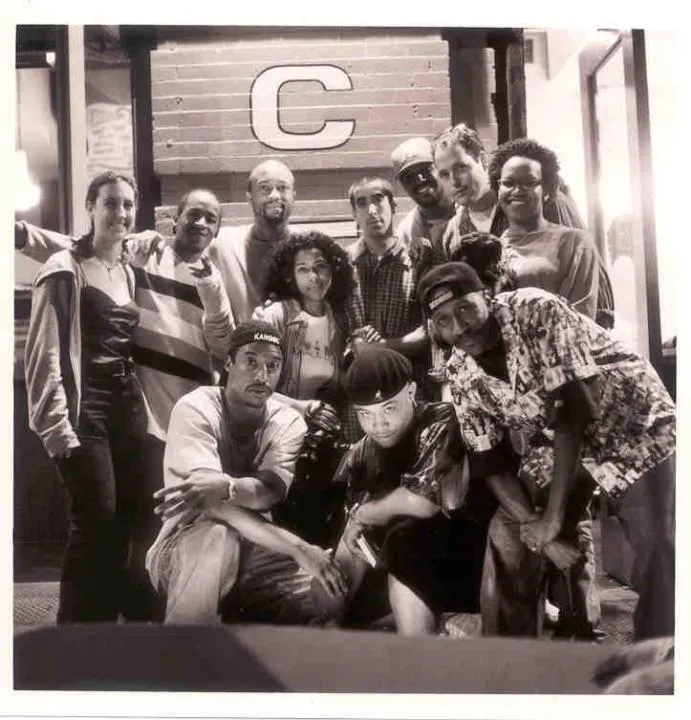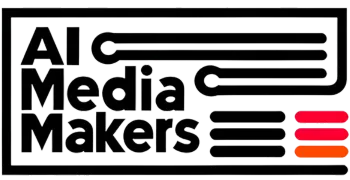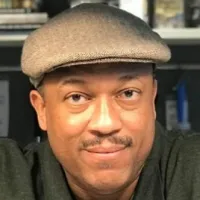Our Latest Blogs

6 Lessons I Learned Producing My First Documentary Film - "Paper Chasers"
When I started filming my first documentary, Paper Chasers, in the Fall of 1999, I had one goal - to learn the entrepreneurial lessons of hip-hop's most successful business owners, artists, and executives. I had just licensed my self published book, The Digital Video Filmmakers Handbook to the first web video site iFILM. I had a great mentor and executive producer, Peter Broderick, and tremendous support and access from my Black Entertainment TV (BET) family, after having worked at BET through most of the 90s.
Yet still, I had no idea how far and wide my project would take me, and how much it would require from me, for years longer than planned, as the stories unfolded before our cameras. From Southern Cali to Houston, New Orleans, Atlanta, DC, Baltimore, New York, London, Amsterdam, Paris, and Burkina Faso West Africa. From silicone valley web 1.0 to the red carpets of Hollywood, to the Calliope Projects of New Orleans, to the fashion showrooms of New York.

We recorded interviews with legends like James Brown and "discovered" a future superstar, Chris "Ludacris" Bridges, who graciously let us into his world for more than 3 years, documenting how he built his business and career. When the movie debuted at the Tribeca Film Festival in 2003, I had already conducted dozens more interviews than I initially planned. By the conclusion of the project, in 2007, I had recorded more than 200 interviews, though only 50 made it to the final documentary that was released on DVD and broadcast on the Independent Film Channel (IFC) and Netflix through most of the late 2000s.

Throughout the course of the project, I was concurrently advocating digital filmmaking and digital distribution everywhere I went. I spoke at filmmaking events and conferences. I coached folks online. And I gave away and sold my filmmaking book at every stop. I put my book in the hands of veteran filmmakers like Warrington Hudlin, Robert Townsend and Bill Duke, as well as the then emerging filmmakers like Tyler Perry, Rob Hardy, and many more.
In the years that followed, I would produce more documentaries, including Exit Strategies, The Legacy of Eazy-E, and others.
Today, my wife Schatar Collier and I are the owners of Super Livestreams, an OTT TV channel publisher and services platform for publishers, content creators, educators and marketers. We operate The Documentary And Reality TV Channel and Black Reflections Movie Channel on Roku.
Sample Promo Video for Nunchaku - The Series
Nearly everyday, often multiple times per day, we are approached in person, online, or via telephone by first-time filmmakers, veteran filmmakers, YouTubers, marketers, and countless people seeking to produce documentaries, non-fiction videos, movies, and docu-series.
The following are some of our most common tips and suggestions.
Create A Project Plan - While many motivated people just pickup a camera and began to film, by creating a project plan you stand a great chance of keeping control of your expenses and creative direction. Every plan should have a super clear budget, schedule, and goals. These goals will be critical to keep in mind at every stage, to keep your focus, while allowing flexibility to nimbly adapt to emerging events and circumstances during your production and post.
Produce A Promo Video - You don't have to wait until your production begins to produce a promo video. The Nunchaku Series trailer above is an example of an early promo video. In fact, you will have multiple iterations of promo videos and trailers along the way through production, post production, and distribution. You can create these early teasers using familiar tools like Powerpoint and iMovie. Or specialized online tools, like MotionDen, Powtoons or Animoto. You can source photos and videos from free and paid stock video houses like unsplash.com, shutterstock.com, and videoblocks.com . These promo videos can be used to raise money via crowdfunding sites as well as to attract potential interviewees or crew members.
Set-Up A Simple Website - A one page website or landing page can become your calling card on the web. These are faster and cheaper to build than ever thanks to the power of free open source tools like Wordpress or low cost site builders like Wix and Squarespace.
Create Some Custom Merch - It was an arduous tasks when I first started selling t-shirts back in the day. We had to guess at colors and sizes to order a minimum number for inventory. Then I had to have a place to store and ship orders. Fortunately, in this era of print on demand technology, you can choose from hundreds of custom products to create merch for your film's promotions and fundraising without touching, holding, or shipping any inventory.
Conduct Early Interviews - With a world of quality video cameras on mobile phones, you dont have to wait for your full crew and principal photography to conduct some preliminary interviews that may or may not end up in your final project. Consider these first interviews field research, allowing you learn more about your topic. Practice interviewing and get comfortable with speaking and listening.
Transcribe Your Interviews - Begin the habit of integrating transcriptions into your post production work flow early on. I've debated this with many first time documentary filmmakers who believe that they can remember everything said and filmmed during an interview. However, with AI powered transcription tools like https://aws.amazon.com/transcribe/ you don't have to. In fact, today, we even have the ability create transcripts directly in our editing programs and search videos based on these.

While these suggestion can help you move your project along. We have discovered that misinformation and isolationism are the bane of many documentary filmmakers.

In the Spring of 2019, we began to build My Documentary Accelerator, an online training, coaching, and support community for documentary filmmakers. Beginning this Sept, over the course of 12 weeks, we will guide cohort participants through planning every stage of their project from idea through distribution and marketing.
By the completion of the sessions, participants will have created a comprehensive project plan, promo videos, preliminary websites, test interviews, camera shoots, promotional merchandise and more. Additionally, cohort member retain access to the training and community for 1 year, providing support long after the online training sessions are completed.
For a free lesson and additional information, visit My Documentary Course https://mydocumentarycourse.com/webinar/
In my next post, I'll share stories and lessons learned from 25+ years of web streaming and OTT TV, from the early days of postage stamp sized Quicktime videos and CuSeeMe video chats back in the early 90s, on up to the latest battles for our screens, subscriptions, ad dollars, and brand loyalty.
Thanks for reading!
Frequently Asked Questions
What are affiliate courses?
Affiliate courses are online courses that teach you how to become a successful affiliate marketer. Affiliate marketing is a way of earning commissions by promoting other people’s products or services to your audience.
Why should I enroll in affiliate courses?
Affiliate courses are online courses that teach you how to become a successful affiliate marketer. Affiliate marketing is a way of earning commissions by promoting other people’s products or services to your audience.
How do I enroll in affiliate courses?
Affiliate courses are online courses that teach you how to become a successful affiliate marketer. Affiliate marketing is a way of earning commissions by promoting other people’s products or services to your audience.
How much do affiliate courses cost?
Affiliate courses are online courses that teach you how to become a successful affiliate marketer. Affiliate marketing is a way of earning commissions by promoting other people’s products or services to your audience.
What if I have questions or problems during the course?
Affiliate courses are online courses that teach you how to become a successful affiliate marketer. Affiliate marketing is a way of earning commissions by promoting other people’s products or services to your audience.




